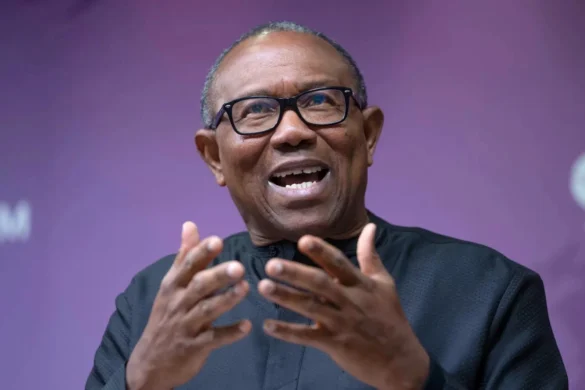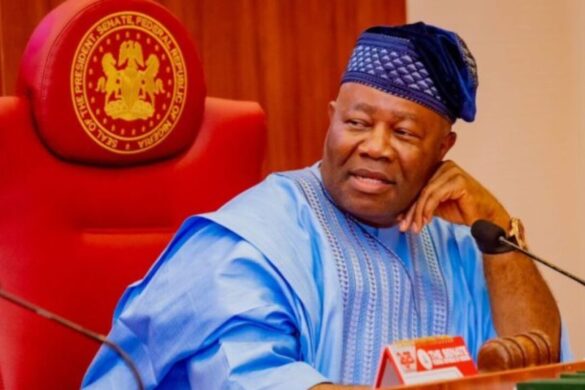Femi Gbajabiamila, Chief of Staff to President Bola Tinubu, has stated that there is currently no fixed timeline for the implementation of the Steve Oronsaye Report.
Speaking on Tuesday after an official visit to the headquarters of the Nigeria Extractive Industries Transparency Initiative (NEITI) in Abuja, Gbajabiamila dismissed claims that the report has been stalled.
The former Speaker of the House of Representatives emphasized that the Federal Government is diligently working on the necessary steps to ensure a smooth implementation of the policy when the time comes.
“The Oronsaye Report is actively being worked on,” Gbajabiamila said. “While discussions have been ongoing for months, it’s crucial that we approach this with the required thoroughness. A committee has been set up to carefully review the report, and I’m confident that the final recommendations will be released soon, paving the way for implementation.”
When asked for a specific timeline, Gbajabiamila responded, “I can’t give an exact date, but it will be soon. We are prioritizing thoroughness over speed to ensure that when it’s implemented, it’s done correctly.”
The Oronsaye Report, which has been in limbo for 12 years, gained renewed attention during the administration of former President Muhammadu Buhari, though no significant progress was made. The current administration has signaled its intention to implement the report as part of its cost-cutting measures.
In February, the Federal Executive Council (FEC), chaired by President Tinubu, approved the full implementation of the Oronsaye Report. The report recommends merging, subsuming, or relocating various parastatals, agencies, and commissions to streamline government operations and reduce costs. To oversee these changes, FEC established an eight-member committee tasked with implementing the mergers and abolishments within 12 weeks.
However, six months have passed, and the report’s recommendations have yet to be implemented. Instead, the President created a new Ministry of Livestock Development from the Agriculture Ministry in July, a move that sparked mixed reactions.
The Oronsaye Report originated in 2011 when then-President Goodluck Jonathan established the Presidential Committee on Restructuring and Rationalization of Federal Government Parastatals, Commissions, and Agencies, chaired by Steve Oronsaye. The committee’s 800-page report, submitted on April 16, 2012, identified significant overlaps among government agencies, leading to excessive spending. It recommended reducing the number of agencies from 541 to 161, abolishing 38 agencies, and merging 52 others.




